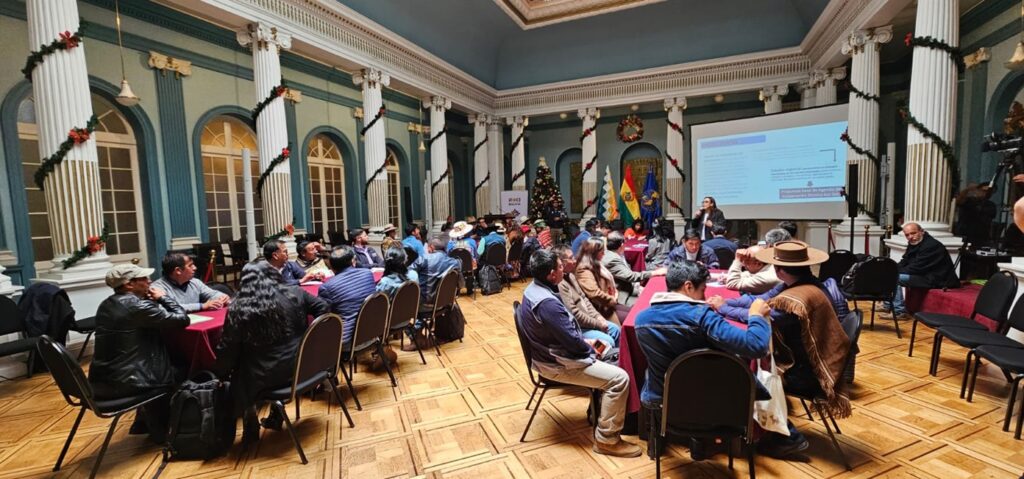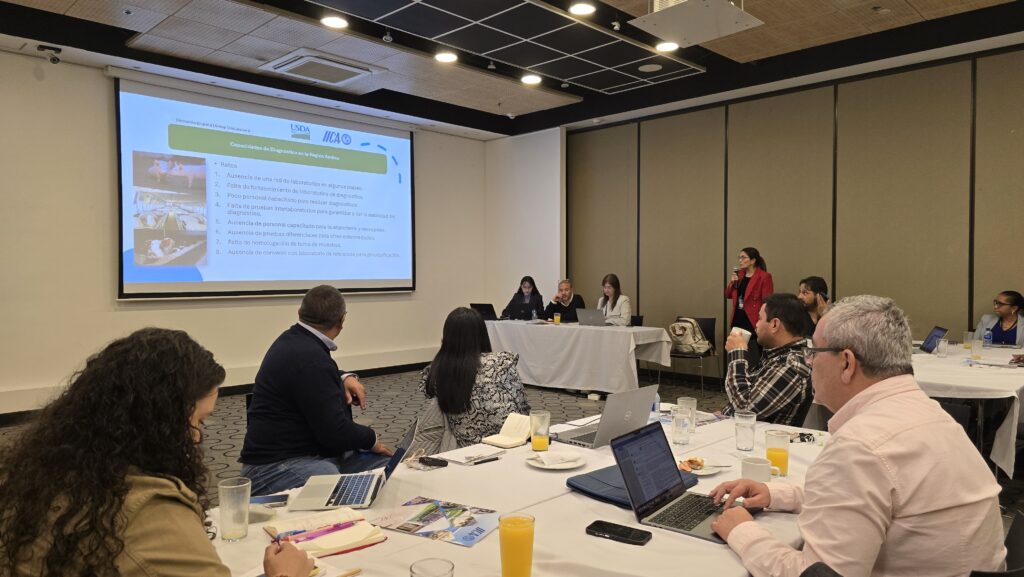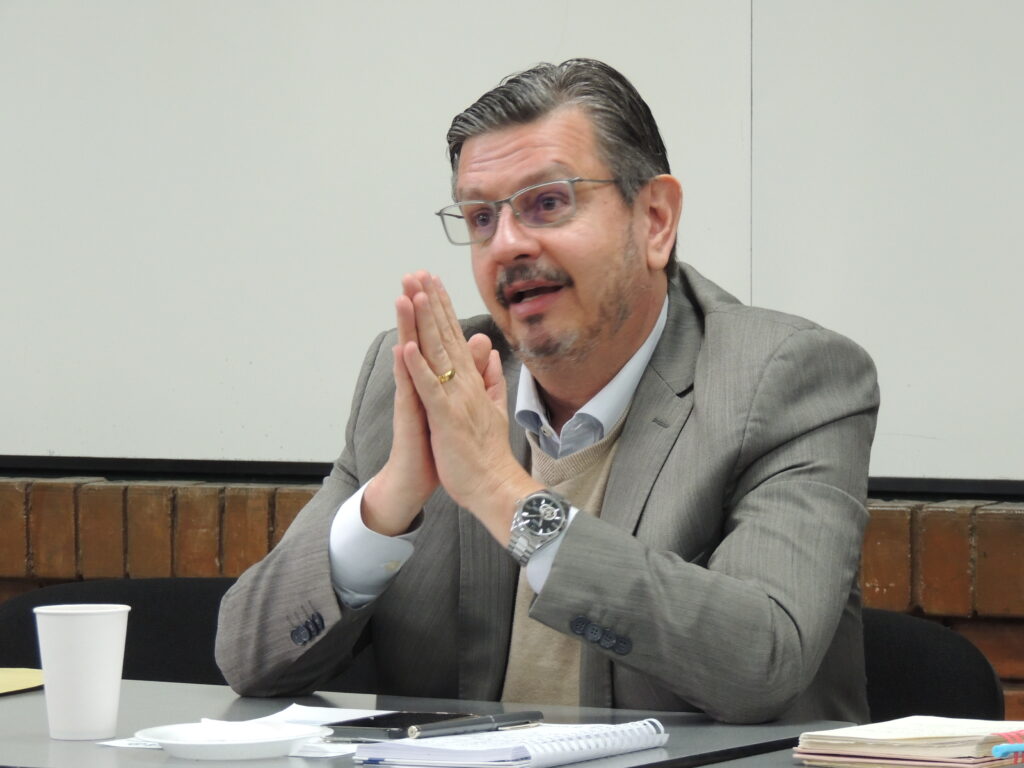El Secretario de Agricultura de Estados Unidos, Tom Vilsack, habló a sus pares en la Conferencia Ministerial organizada por el IICA. Alertó sobre los impactos devastadores del cambio climático y llamó a terminar con el hambre, indicando que “la agricultura debe y puede ser parte de la solución”.
San José, 2 de septiembre de 2021 (IICA) – La agricultura y el uso de la tierra ofrecen algunas de las mejores soluciones para mitigar el cambio climático, incluyendo el secuestro de carbono por parte de los suelos, afirmó el Secretario de Agricultura de los Estados Unidos, Tom Vilsack, quien habló a sus pares del Hemisferio en la Conferencia de Ministros de Agricultura de las Américas 2021.
En la reunión organizada por el Instituto Interamericano de Cooperación para la Agricultura (IICA), que lleva el lema “Sistemas Agroalimentarios Sostenibles, motor del Desarrollo de las Américas-, Vilsack dijo que “para lograr resiliencia y seguridad alimentaria global y reducir el impacto del cambio climático sobre las personas es crítico que las voces de la agricultura estén sentadas a la mesa en que se diseña e implementa la acción climática”.
El funcionario agregó que los agricultores deben también ser escuchados a la hora de buscar “soluciones creativas para hacer a nuestro sector más verde y a las comunidades, más resilientes y equitativas”.
En la reunión virtual, los ministros de las Américas discutieron, entre otras cuestiones, el posicionamiento común del Hemisferio ante la próxima Cumbre de Sistemas Alimentarios de la ONU, el surgimiento de amenazas al comercio agropecuario por la aparición de nuevas plagas y enfermedades, los efectos de la variabilidad climática en el sector y su carácter estratégico para la recuperación económica post Covid-19.
El Secretario afirmó que los Estados Unidos apoya de manera sólida el trabajo del IICA y valoró el liderazgo del Director General, Manuel Otero, “y su compromiso para abordar los problemas colectivos del Hemisferio”.
“Es decisivo que continuemos trabajando juntos, que tomemos decisiones basadas en ciencia, y que juntos impulsemos herramientas y tecnologías innovativas para construir un sistema agrícola productivo más sostenible y más resiliente en el Hemisferio”, afirmó Vilsack.
“Todos –añadió- hemos sido fuertemente impactados por el desafío del Covid-19 y hemos hecho esfuerzos significativos para mantener una cadena de abastecimiento resiliente. Quiero reconocer a las esforzadas personas que trabajaron día a día en el frente en este tiempo de incertidumbre, especialmente nuestros productores y trabajadores agrícolas”.
Vilsack señaló que las transformaciones de los sistemas agroalimentarios deben hacerse de acuerdo a las características productivas, sociales y climáticas de cada país y cada región.
“Hay muchas respuestas –consideró- para los múltiples desafíos que enfrentamos en agricultura. La UE tiene un camino y Estados Unidos y otros tienen uno diferente. Un camino igualmente convincente basado en ciencia. No hay un talle que le sirva a todos los países para asegurar prácticas agrícolas sostenibles y resilientes”.
El funcionario puso en primer plano el trabajo conjunto realizado en el último tiempo por los países de las Américas, basado en ciencias y buenas prácticas regulatorias, en temas como el desarrollo de estándares internacionales para la salud animal, entre otros.
Subrayó, además, que, con el liderazgo del Director General del IICA, los Estados Miembros mantuvieron tres discusiones, al cabo de las cuales se alcanzó una voz unificada del Hemisferio Occidental de cara a la Cumbre de Sistemas Alimentarios, que tendrá lugar el 23 de septiembre en Nueva York.
“Debemos asegurar que el resultado de esta Cumbre permita a los países encontrar caminos hacia sistemas alimentarios más sostenibles, accesibles y equitativos, que no creen barreras innecesarias al comercio”, dijo Vilsack.
El secretario también hizo hincapié en que luego de la Cumbre de Sistemas Alimentarios se realizará en Gran Bretaña la Conferencia de las Partes de la Convención de las Naciones Unidas sobre Cambio Climático. Allí Estados Unidos –adelantó- lanzará una iniciativa tendiente a aumentar la inversión y a propiciar un diálogo renovado entre las finanzas, la agricultura, la innovación y otros actores, con la finalidad de construir “una iniciativa de investigación y desarrollo agrícola que catalice una ola de soluciones climáticas”.
“Conocemos –dijo- los impactos devastadores del cambio climático, que han afectado los sistemas alimentarios, y que probablemente sean peores. Los desafíos son múltiples: tenemos que terminar con el hambre en el mundo, mitigar y adaptarnos al cambio climático y combatir la pandemia que aún está sucediendo. Juntos podemos hacer más y la agricultura debe y puede ser parte de la solución”.
“Me comprometo a trabajar junto a los estados miembros del IICA para abordar los desafíos y aprovechar las oportunidades no sólo en el Hemisferio Occidental, sino en todo el mundo”, cerró Vilsack.
Más información:
Gerencia de Comunicación Institucional










